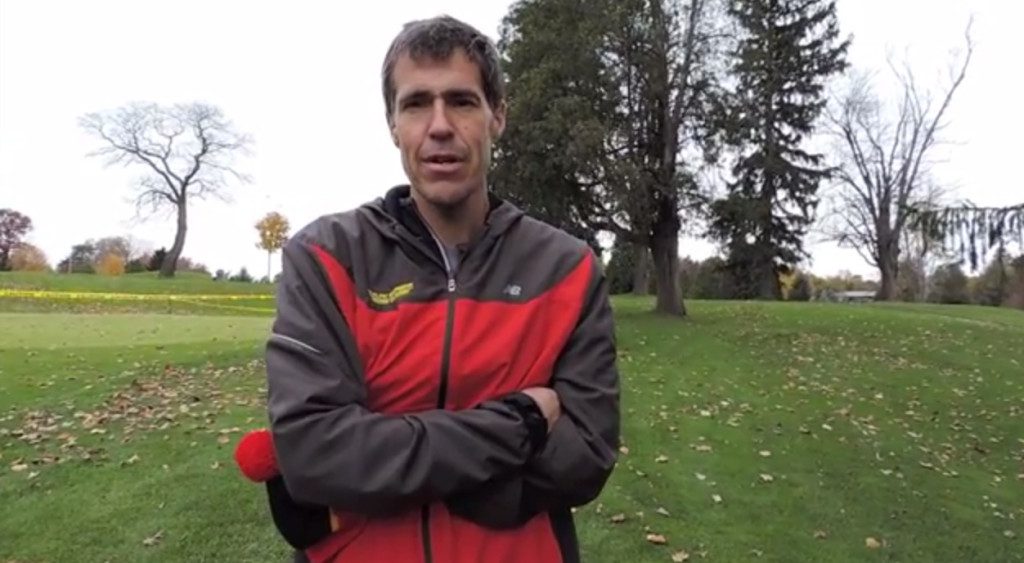Megan Brown shares her story about what happened at Guelph
The athlete at the centre of the controversy surrounding former Guelph and Team Canada coach Dave Scott-Thomas told The Globe and Mail about what led to the coach's firing, 19 years after he recruited her

UPDATE: A previous version of this story inadvertently used language that was insensitive to Megan Brown and did not adequately reflect the seriousness of the situation she described. We deeply regret this, and have edited the story accordingly. The previous text did not accurately reflect our stance regarding this serious and sensitive subject. All of us at Canadian Running condemn in the strongest terms abuse of any kind, and wish to express our sincere support for victims of abuse. We strongly encourage athletes who have experienced abuse or harassment at any level of sport to reach out for support to the Athletes’ Council of Athletics Canada, or to visit the Safe Sport page on the Athletics Canada site or the Canada Sport Helpline.
A lengthy cover story in Saturday’s Globe and Mail reported the details behind the December 17 firing of former University of Guelph and Team Canada coach Dave Scott-Thomas. It relates how in 2002, the 38-year-old married father and coach recruited 16-year-old Megan Brown, one of Canada’s brightest junior running stars, and manipulated her into a sexual relationship, breaking it off two years later and dropping her from the program. The experience ultimately destroyed both her running career and her mental health.

RELATED: University of Guelph fires head coach Dave Scott-Thomas
Brown, who is now 35 and lives in B.C. with her husband and child, was coached by Scott-Thomas as a junior runner and remained with him for one semester at the University of Guelph, where multiple athletes said Scott-Thomas promoted a culture of intimidation and drove them to the point of injury and beyond. Brown says that in 2004, Scott-Thomas turned on her, rejecting her, kicking her out of the program and becoming physically abusive after she confided in a teammate. Brown’s mental health suffered, and she was hospitalized several times.
Brown would later transfer to the University of Toronto, where she won two national cross-country championships, in 2006 and 2008. But even though Brown’s father told the university and Athletics Canada about Scott-Thomas’s behaviour in 2006 in an effort to prevent it from happening to other athletes, he got nowhere, and Scott-Thomas was now also a Team Canada coach. This meant that for Brown, trying to go further and compete internationally became impossible, and her running career imploded in 2012.

The university claims to have suspended Scott-Thomas for a period of four months in 2007, something none of the dozens of athletes interviewed for the story remembers happening.
Scott-Thomas was quietly placed on leave in October of 2019 from his head coaching position at the University of Guelph after another student-athlete made a complaint, and was abruptly terminated on December 16, 2019. That afternoon, Athletics Canada closed its Centre of Excellence (stationed out of the university) and severed ties with Speed River, the track club that Scott-Thomas founded and which has since ceased operations.
Athletics Canada has issued a statement acknowledging the story’s allegations. Its Independent Commissioner’s Office (which was created in 2015) started an investigation upon learning of the complaints about Scott-Thomas in December. AC did not indicate when its investigation would wrap up, and declined any further comment until that time.
Brown has left the Ontario running community for a fresh start in B.C. She says she decided to share her story after Mary Cain reported her own experience of abuse by former Nike Oregon Project coach Alberto Salazar in a video for the New York Times in 2019. Brown’s final words in the Globe story read: “This is how abuse of power works–the one in a place of power stays protected by the victim because the victim has too much to lose in speaking the truth,” she said. “The victim is the one who suffers, who is ostracized, who is labelled, who is forced to rebuild their life, while the person in power continues to reap the benefits of their power.
“If I had nothing to lose, Dave wouldn’t have had this kind of power over me. And that’s why I’m finally ready to share the truth.”


